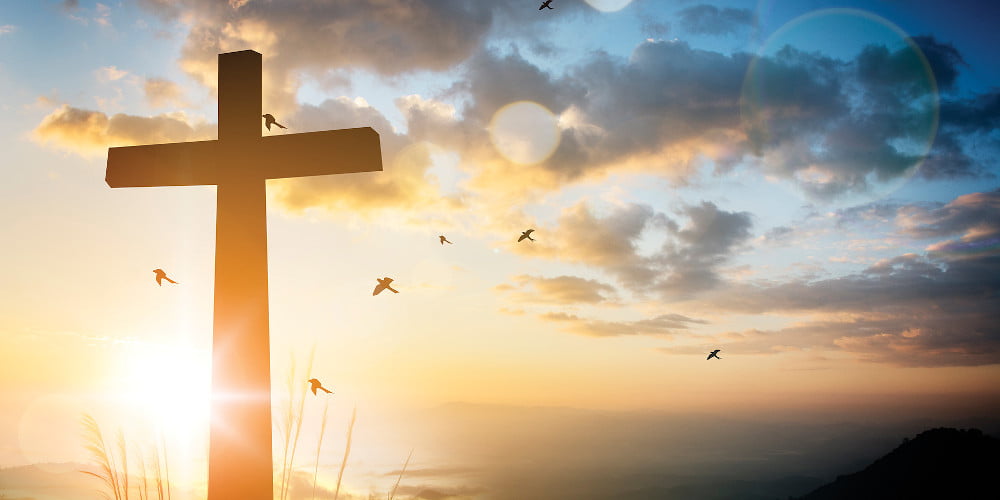Oh boy howdy are we going to need to content warning this one.
Content Warning: SUICIDE. I am going to talk about suicide a lot! I’m going to talk about it and martyrdom but really, importantly, I’m going to talk about suicide and also, suicide denialism, which, you may think that’s not a thing but it really is. I also mention some transphobia and climate anxiety.
Christians love martyrs.
We love Martyrdom, absolutely love it. I mean it stands to reason, our central figure was a dude who could do anything and he came to earth and got himself killed. Given that he was an extension of an immortal invisible god only weiss it stands to reason that he like, didn’t have to do that, and therefore, he was kinda choosing to die, but the point is that martyrdom is a super important part of Christian lore. We looked to the martyrs for our historical significance, and that meant that martyrdom was vital to the narratives we accepted.
Everyone got martyred.
Daniel was a martyr, even though he lived through it both times. Tyndale was a martyr. All the disciples, all of them, were martyrs. All the church fathers were. As a direct result of this, there’s a shocking amount of stories I read as a kid, kid’s stories with kids’ presentation that concluded with our hero fucking dying because that was part of god’s plan, where he could go on to live forever in heaven. There was a very clear vision of how there was no proof of greater character than a willingness to die for your cause. No matter what, no matter how much or how little. A whole life could be thrown away into the grinder if that saved just one person.
As a fundamentalist, we loved to emphasise martrydom and you might think, if you’ve been boiling your brain in Umberto Eco the Dolphin spinoff fanfic the past few years for some reason, that yes, it is weird to have an entire cultic space dedicated to a vision of death and glorious immortality, like some sort of fascist thing, and yes, that is coincidentally important but that’s not the important thing here. The important thing was that we absolutely, absolutely, absolutely valued martyrdom as an inherent validation. It didn’t matter in what circumstances, we would restructure any story where a Christian (as we saw it) died, as martyrdom. We would invent people to be martyrs, telling stories of the millions of dead Christians in Soviet Russia at the behest of the dreadful Stalinist regime, oh all those people were martyrs. Did we have names? Oh no, but we’d make them up. Literally, I read stories about entirely fictional Russian Christians, invented as part of a narrative, who just wanted a way to worship god, and were willing to be disappeared by the KGB into a work camp for it.
The willing submission to death was, vitally important to our history and our worldview. Nobody, nobody would submit themselves to death without an awareness of the truth of life eternal, and we knew that because only Christians did it.
It isn’t true, by the way. Most of the names they mention aren’t even verifiably martyred for the reasons they cite. Tyndale was executed because he was politicking against the king, and that’s bad but his belief he was executed for was not believing heresy was good. It was believing the king shouldn’t divorce his wife and everyone who agreed with him should act on that. Most of the stories of the Disciples aren’t verifiable. And of course: A bunch of these people were just made up.
Perhaps as an obvious throughline to this idea, we were very invested in ideas of Muslim martyrdom being fake. This is an idea that didn’t last very long as the stereotype of the Muslim sucide bomber became a thing, and I think the last time I saw the idea being countenanced seriously was somewhere around oh, uh, September 10th, 2001. But then we pivoted from ‘only Christians do it’ to a new position that Muslims were only able to do it because they were fooled, often by demonic influence.
In 2001, I was well out of the Christian Fundamentalist church, but I was also living with someone who had that prison in his head and you’ll bet we got to hear some words about that at the time. I’ll spare you, but there was a sudden shift that Muslims were only committing suicide in the name of their god because they had been duped, they had been fooled and that it always came with a specific promise.
You know the promise right? Yeah. It was always the seventy virgins thing.
I have no idea if that’s a thing. I doubt it. It probably isn’t, because nobody is as clueless about what’s in the Qu’ran as Christians who are confident about it, and I’ll leave the counterapologetics for Muslims to the people who actually have to contend with that worldview. I’m not Sam Harris here, leaping in fear at the Potential Global Endangerment of What I Am Pretty Sure I Could Imagine Islam As Being.
What they did wasn’t martyrdom, it didn’t count.
But there was another thing that came up – a thing that was brought up as a rhetorical point around this narrative about who owned, in some way, the rights to describe their own deaths. The deaths of the apostles, the martyrdoms of Christians were always more heinous, more terrible, more dangerous, and nobody,
nobody
would willingly go to the fire that wasn’t Christian.
I considered putting a picture here of Thích Quảng Đức, in the process of self-immolating. I really did consider it. It was the image that got burned into my brain as a child, found in a ‘secularist’ encyclopedia made in the 1980s about the war in Vietnam. If you don’t know the name, if you don’t know the story, Thích Quảng Đức was a Vietnames Mahayana Buddhist Monk who, in 1963, sat in the middle of a busy Saigon road intersection, doused himself in petrol with some assistance, and set himself on fire.
What Quảng Đức was protesting, by the way, was the treatment of Buddhists in his space. I didn’t know that. What he cared about, what he thought, and what about him mattered, both within his faith and outside of it, had to be erased, because of what he did. The reason is almost immaterial here; the reason he had for doing it was immaterial to my childhood space. What was very important a thing to learn, a thing to be told when I was only eleven years old, was that this was a fake photo.
That only Christians, only Christians, willingly went into the fire.
What Quảng Đức was an act of violent self-harm that was so immense, so intense that it shocked the very senses. It’s generally seen as a natural fact that nobody commits suicide for entirely sensible reasons, because killing yourself can’t possibly be done rationally. I don’t agree with that – I’ve heard very good cases about it, and I tend to think of suicide, now, as a byproduct of a lack of better alternatives, and that, over a long enough timeline, anyone can wind up in that situation. But even beyond that, accepting death immolation is an act that my entire childhood set up as a true example of an ideological power, that it was a legitimising act, that burned witches deserved it and burned martyrs were more powerful because of their willingness to accept that end.
Since learning about Quảng Đức, I have learned four more names that did this. One was Malachi Richter, a music fan who realised he had had a chance to kill Donald Rumsfeld before the invasion of Iraq and didn’t do it, resulting in him eventually self-immolating in 2006 in protest for the Iraq war. Another was David Buckel, the lawyer depicted in the movie Boys Don’t Cry, who self-immolated in protest of fossil fuels, as part of the climate crisis. Wynn Bruce, in 2022, also self-immolated for the same reason.
The fourth name is Chloe Sagal.
Chloe Sagal was someone I kinda knew. I was kinda friends with her, in a kinda way. I was in the space around her, I tried to talk to her kindly, I tried to help her, in the vague and general way of a boy in 2014 talking to a trans woman on the internet who was absolutely under fire, but was very much discouraged from doing so. She was subject to an extensive transphobic harrassment campaign and wound up commiting suicide through self-immolation.
I think about people who did this, this incredibly violent, terrible way to end, a thing that screams of a desperate need for something to be heard and something to be done even if it isn’t being done enough and even if it doesn’t fix things for me, it needs fixing, badly.
And I think about how many of these people suffered because of real things that really happened and were really done by real people. My childhood invented people who never lived and claimed they were willing to go to the fire, that nobody did this, to literally deny the most obvious truth of how these people died. My adulthood shows me people who really did, were really willing to do it, and their doing it is in response to some of the greatest crimes ever done.
I think about how in every case, the wrong people died.



1 Comment
@Talen_Lee this might be my new favorite piece of your writing. It's so good and speaks to the rabid suicide denialism in evangelicalism really well